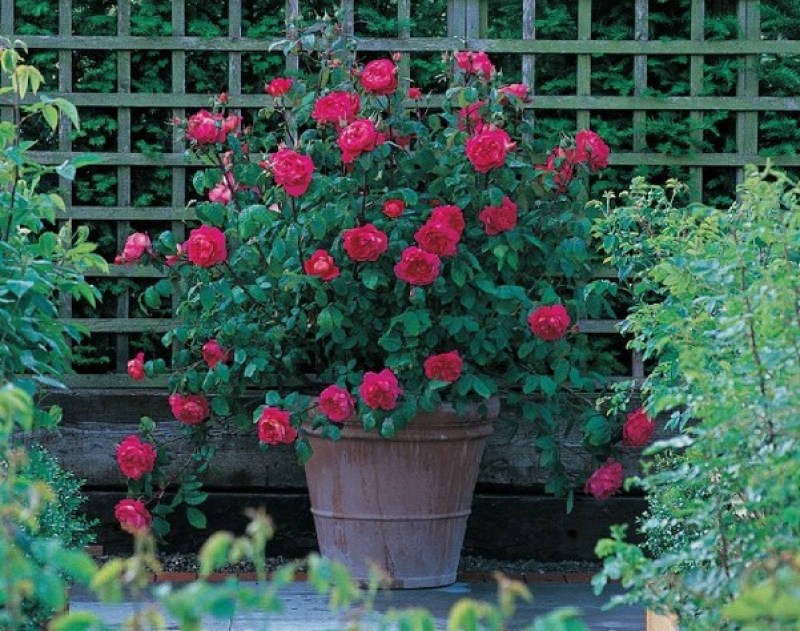Roses in the garden, yard, flowerpot and around the house: 84 stunningly beautiful ideas for inspiration
As one of the most beloved plants for the garden, in the world are the roses, where they deserve a prominent place in our garden. A garden with roses can be so simple and coexist with other plants just as well! But it can be so elaborate and highlight its beauty in combination with various decorative elements. Even smaller spaces can accommodate roses in pots, flower beds and flower pots in courtyards.
Roses, which create a unique atmosphere in your living space with their aesthetic appearance and unique aromas, are one of the easiest varieties of plants that can be grown in pots. Do you know how to plant, care for and care for roses?

Charming and fragrant roses on your country house: inspiring DIY ideas
Choose the right seed
The choice of seeds is very important when growing roses, as in all plant species. If you choose roses suitable for the climatic conditions of your place of residence, you can see that your roses will bloom in a short time.
Prepare the soil properly
The soil that you will use in the process of growing roses is also an extremely important parameter. Soils that are dry, and therefore impossible to properly distribute water, are not suitable for growing roses. It is recommended to choose a type of soil that is suitable for growing roses, has an ideal moisture content and distributes the water you pour evenly.
Take care of your roses
If you put the pots you planted roses in the window, where they can receive sunlight for a few hours a day, you can get results in a short time. It is also important to take care that the roses do not remain too hot or cold and to water them regularly. You can create an extremely rich and decorative look in your home by growing roses of different species at the same time.

Red flowers, a real oasis of passion and color in your backyard
How to prune your rose?
Pruning roses is extremely important for the flower. It significantly helps it grow with greater accuracy and health. For this reason, you can start pruning immediately after the growth of your flower.
By cutting branches of your plant that are inefficient, ie not mature enough to bloom, you can create space for more productive branches.
For pruning, it is recommended to use small garden shears or a knife. You can complete the process by removing the twig from the root with a knife or scissors.
It is extremely important for the health of your plant to be careful not to damage the trunk or healthy branches when pruning.
When should the rose be planted?
It is extremely important to wait for the right time to plant your roses. An elegant and fragile plant, such as the rose, seeks abundant sun and mild climatic conditions. Therefore, you can plant your roses in late March, April or early May. Roses planted before March can not grow as normal due to cold weather and heavy rainfall, and roses planted after May may not grow as expected due to excessive heat and drought.

How can we reproduce a rose?
You can use the following options to reproduce your roses and grow beautiful roses in different pots.
Cut a branch from a healthy rose from the root and put it in the soil.
Separate a healthy rose branch from its stem. Make a small notch in another body. Place the branch you cut in the notch and wrap it around. With this method, called grafting, you can ensure that non-flowering roses bloom.
Unwanted neighbors for roses: which plants should not be planted next to the queen of the garden
Where to plant a rose
Create a wonderful entrance to your home with an arbor covered with roses.

Plant a fence
Plant a row of taller shrub roses to create privacy.
Entrance in garden or yard
Create a separate entrance to your home by hosting a rose garden combined with smaller plantings.
Plant in pots
Many roses can be successfully grown in pots. A good solution for small spaces, gardens, courtyards, balconies and patios. Pots can accommodate shrubby roses. Dwarf varieties can be grown in smaller pots or in hanging baskets.
Cover a slope
There are also varieties for ground cover, where you can cover steep or not slopes. Imagine a slope full of blooming roses! In addition to the ornamental part, they also help to hold the soil.
Grow vertically
Include climbing roses to maximize your space.
Grow horizontally
Create a fence of roses in different shades, “softening” an unsightly wall or define “rooms” in the garden.














































































Images via: Pinterest






